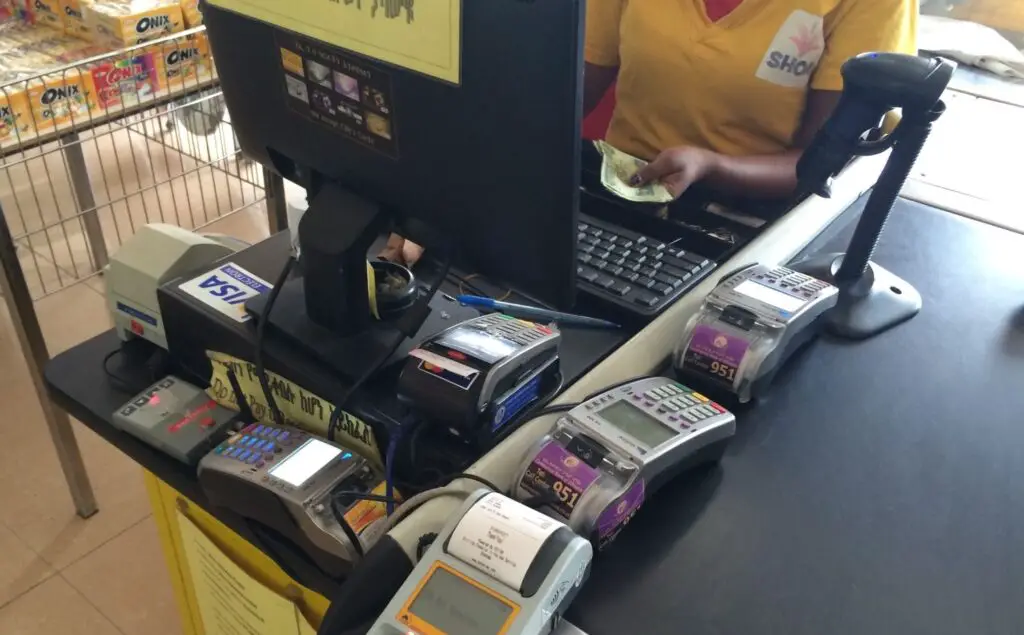- GIFMIS has positively impacted economic development in Nigeria, saving the country over N126 billion
- The system has been used in budgeting systems, payroll management systems, cash management procedures and regulating expenditure for MDAs.
- Ethiopia has linked cash registers at retail business with the country’s tax authority, which has seen the country’s VAT collections increase by about 32 per cent.
During this unprecedented time of the Covid -19 pandemic, governments around Africa are looking at the adoption of e-government keenly since it has the capability to reduce corruption.
What is E-government?
E-government is the use of Information and Communication Technology (ICT) to deliver services effectively, transparently and efficiently to local governments, businesses and citizens in a country.
In simple terms, it is making available services offered by the government through the Internet.
Examples: Tax filing and collection, Electronic health record and maintenance, Application of licenses, Registration of businesses, budgeting and budgetary systems, payroll management and very many other possibilities.
Read: The Fintech Unicorns of Nigeria
E-government targets to improve citizens’ e-participation, creating a delivery platform for e-government and the adoption of data-centred approaches to deliver services and implement the government policy.
The United Nations has noted in their latest E-government survey that governments around the world are embracing technology to keep up with digital governance transformations. The UN says that e-government holds an explosive potential to ensure public institutions deliver public services in an effective, accountable, efficient and transparent manner.
Africa is showing the greatest growth in developing e-government in service delivery. United Nations member states In Africa with a low e-government development index (EGDI) have since reduced from 26 in the year 2016 to seven last year.
However, there is no single country in Africa that has high EGDI values. Seychelles, Mauritius, South Africa and Tunisia are in the top 100 globally for countries with the highest e-government development index values.
E-government in Africa can be witnessed in; bettered online transactions such as tax collection, renewal of licences, registration of businesses and issuance of permits; Digitization of sectors such as health, employment, social protection and budget allocation; increased national portal features
65 per cent of African countries allow for the registration of businesses online.
More than 50 per cent of all African countries allow for the application of government posts online.
Obstacles to E-government Development in Africa
Digital service delivery in Africa faces several constraints. The two main ones are:
- Penetration of the Internet in Africa lies at only 36 per cent (473 million people)
- Digital literacy levels are relatively low in Africa
Revenue lost in Africa over poor systems of handling money is a lot. A more digital programme would help reduce the below cases significantly. In the State of Tax and Justice report published in November 16 this year, Africa has lost US$17.1 billion in tax revenue attributed to evasion of tax
According to African Union research, Africa loses an amount above US$148 billion is lost to corruption every year (25 per cent of Africa’s GDP)
Read: Chinese billionaires raid Kenya’s MFIs, lending apps
Steps towards e-government success
The Smart Africa initiative
It was established in 2013 and it targets to combat e-government challenges by:
- focusing on ICT as a key factor in social and economic growth.
- emphasizing and championing for widespread access to ICT
- bettering accountability and efficiency through ICT
- Using ICT to advocate for sustainable development.
Policy and regulation initiative for digital Africa
This programme was created by the African Union, European Union and International Telecommunications Union. It aims at boosting accessible, affordable, and effective internet connections in Africa. It targets to bring a new 300 million people to use the internet by 2025.
The United Nations believes that the success of E-government in Africa starts through intensive strategies in the national digital transformation and consolidative integration of national priorities with local, regional and global priorities.
Nigeria has introduced a Government Integrated Financial Management Information System (GIFMIS).
It is an IT-based system for accounting and budget control to improve the processes of managing Public expenditure and enhance Ministries, Departments and Agencies (MDAs) accountability and transparency. It is being implemented by the Federal Government of Nigeria.
GIFMIS has positively impacted economic development in Nigeria, saving the country over N126 billion in budgeting system, payroll management system, cash management procedures and regulating expenditure for MDAs.
Ethiopia has linked cash registers at retail business with the country’s tax authority, which has seen the country’s VAT collections increase by about 32 per cent.
Mauritius, together with the Indian Ocean Commission (IOC), is in the process of creating a regional e-government academy. The academy aims at educating Indian Ocean countries on E-government importance.
Zimbabwe has capacitated a public-sector financial management system that deals with the organization, planning, directing and controlling of public funds.
Read: The future of African e-commerce: The challenges of scaling on the continent
